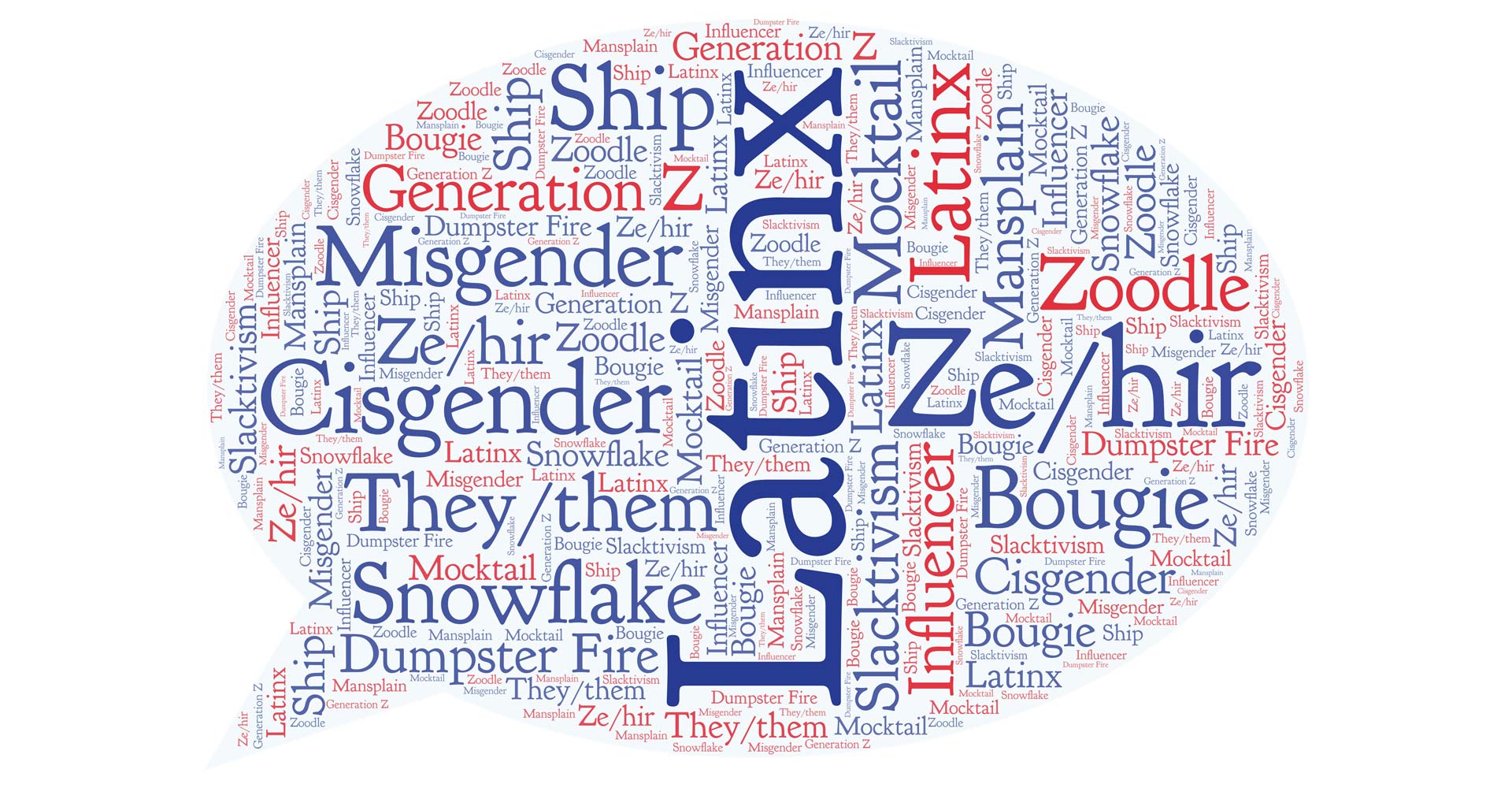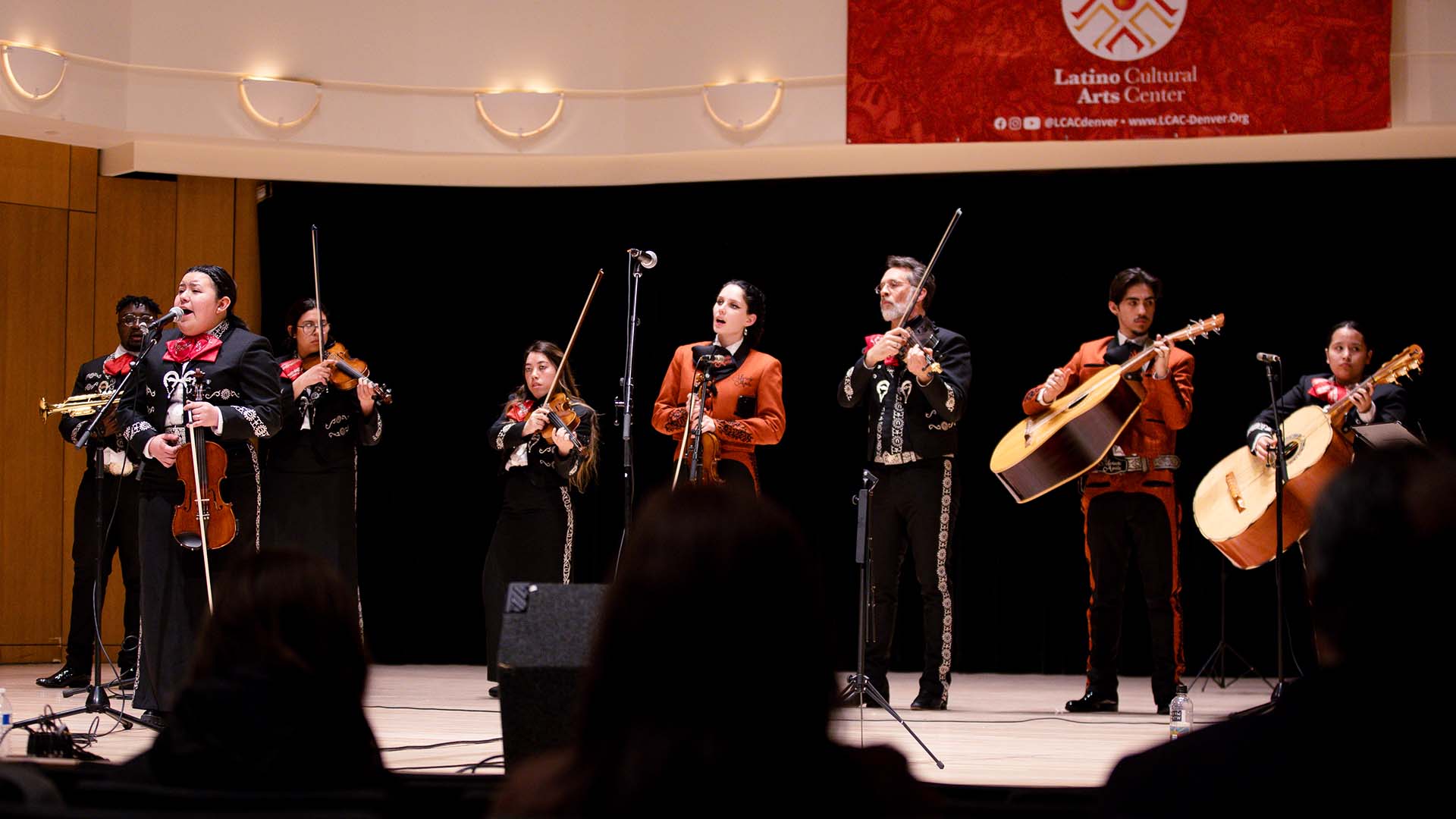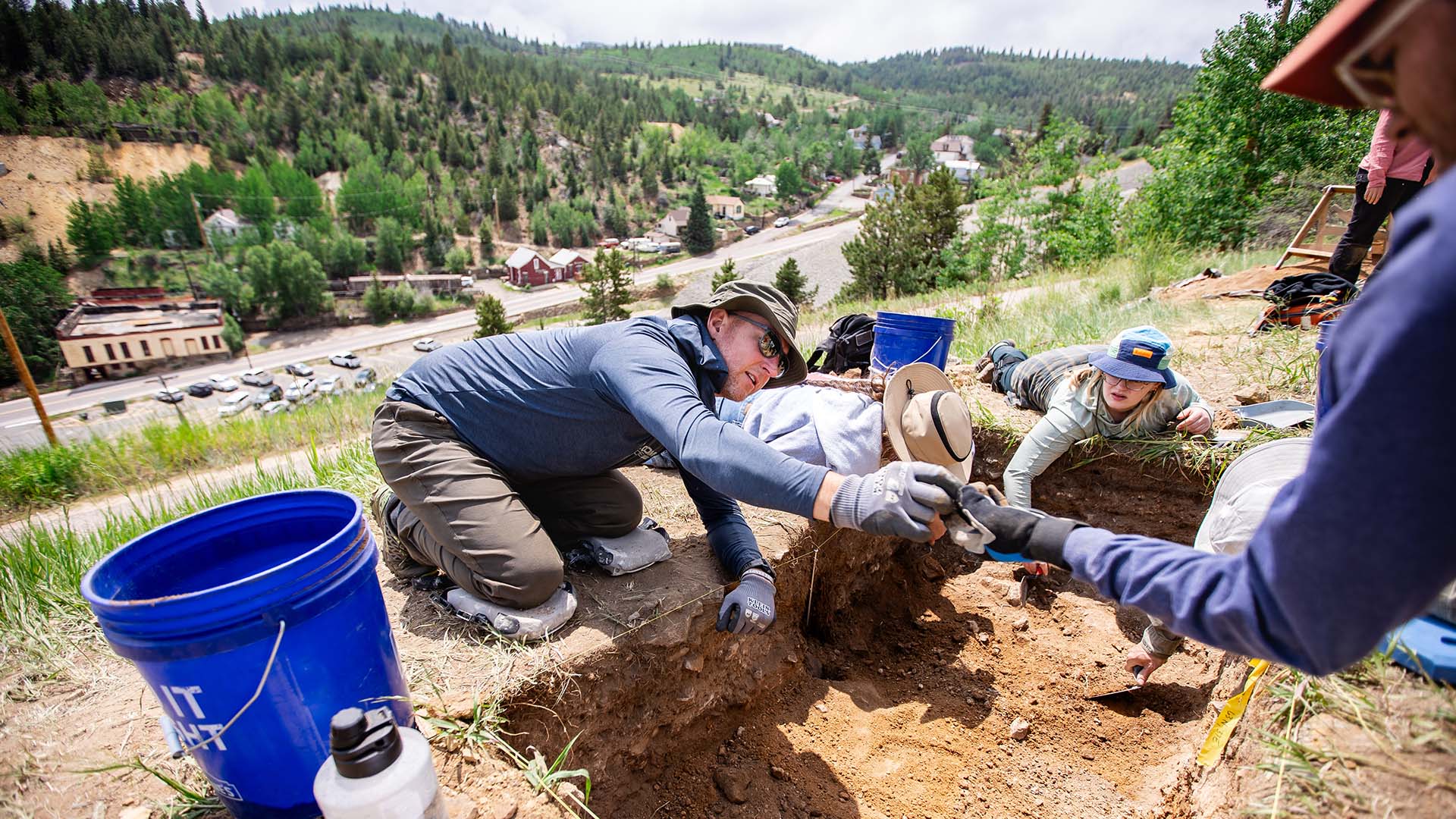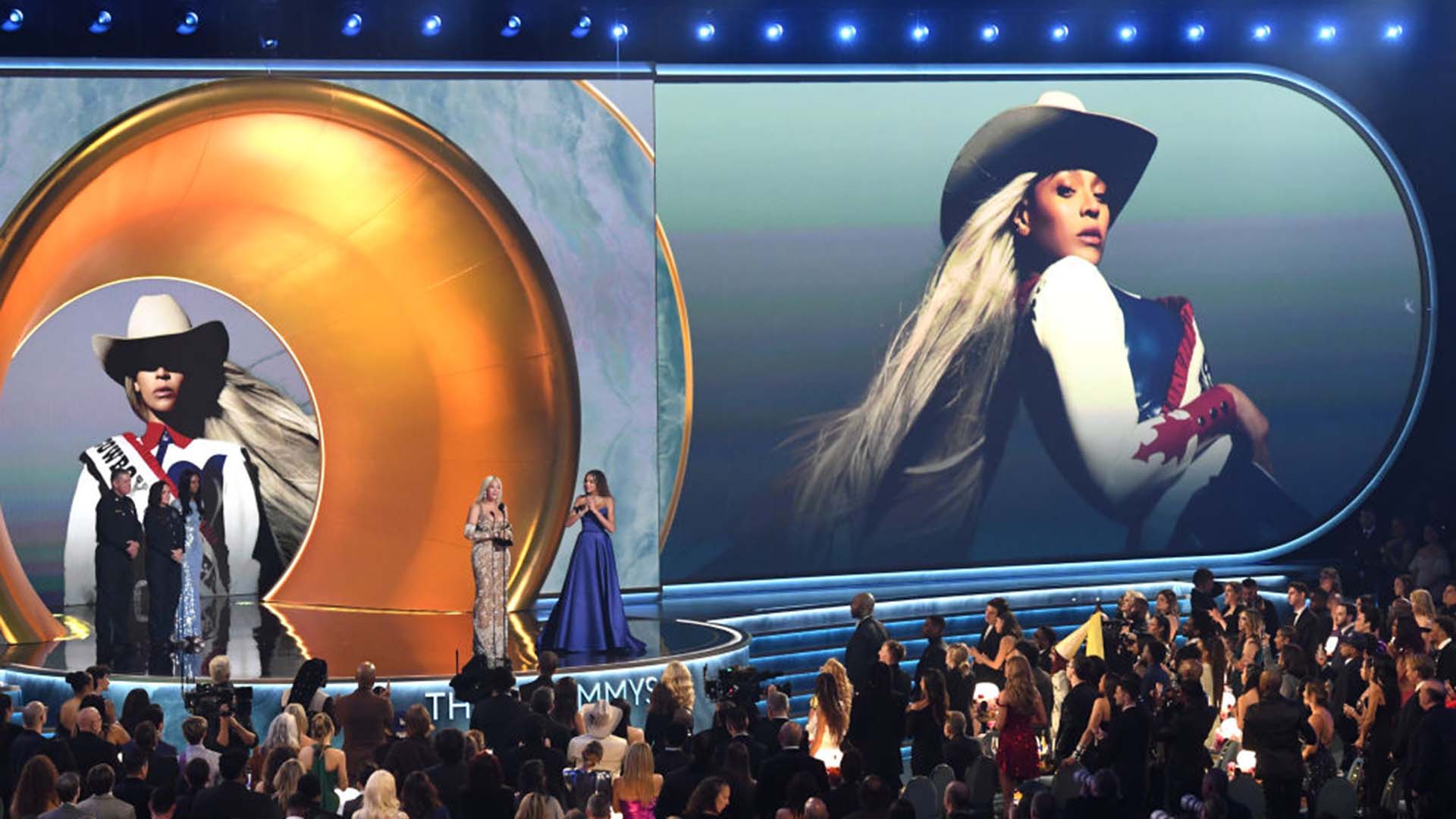Vocabulary builder
ICYMI, a bunch of new words were just added to the dictionary. Here's your guide to the latest buzzwords.

Every year, a barrage of new words enter the popular American lexicon. And as the words we use change, so too does the dictionary.
In the past year, around 1,500 freshly minted terms have been added to the Merriam-Webster database. More than 640 new words were added this month alone.
Many of the latest additions to the dictionary are driven by changing social mores and technical advances, according to Elizabeth Kleinfeld, Ph.D., English professor and Writing Center director at Metropolitan State University of Denver.
“Gender-neutral language is becoming more prominent, as we start to recognize as a society that male and female are not the only options,” she said. “We are also seeing lots of new words based on emerging technologies and social media, such as ICYMI or emoji.”
Another popular trend: portmanteau words, which combine elements of two or more words to make new meanings. Think: hangry.
“There is a long historical precedent for this,” Kleinfeld explained. “Lewis Carroll used portmanteau to describe these kinds of words in his 1871 poem “Jabberwocky.” I imagine the practice has grown popular again because it’s so much fun!”
It can be difficult to keep up with all the changes, so Kleinfeld provided her take on some of the most interesting (and fun) new additions to the dictionary.
Speaking of gender
• Latinx (adjective)
A gender-neutral alternative to Latino or Latina.
Kleinfeld: This word can be pronounced, “Latin-ex,” or “Latincks,” and it is pluralized by simply adding an “s”. Some people complain that the word “disrespects” the Spanish language, but I think that is illogical. A language exists to serve the people who speak it – if people feel disrespected by it, then the language should change.
• Cisgender (adjective)
When your gender identity and sex match. For example, you are anatomically female and you identify as female.
• Misgender (verb)
To assign the wrong grammatical gender to someone (especially a transgender person) in terms not reflecting their preference.
Kleinfeld: The concepts of cisgender and misgender tend to go together because we often misgender people by assuming that that everyone is cisgender. It’s also worth noting that the concept of a “gender reveal” is actually a misnomer—what’s really being revealed is the baby’s sex. Since gender is related to identity, only that person can reveal it.
• Ze/Hir/They/Them (pronoun)
These gender neutral (or inclusive) pronouns deliberately do not ascribe a gender to the person being discussed.
Kleinfeld: “They” has been used as a singular pronoun since at least the 14th century, but many self-proclaimed grammarians still take serious issue with it. However, I do think things will get easier over time – the more we see “they” used as a gender-neutral singular pronoun, the more natural it will seem. But we should remember that all language is a construct, so no word is truly natural. The way we use words and language will always evolve over time – that’s just its nature.
New social and political norms
• Slacktivism (noun)
The practice of supporting causes via social media or online, involving little effort or commitment.
Kleinfeld: I like how this expression now has spin-off words that indicate even less effort, such as “clicktivism” – where you merely need to click ‘like’ on social media to support a cause.
• Influencer (noun)
Someone who influences potential buyers of products by recommending them on social media.
Kleinfeld: What’s funny to me about this word is that anyone can proclaim themselves an “influencer” and then try to get free products. A luxury resort in the Philippines recently went viral with a Facebook post telling such influencers not to bother asking for free stays or perks, because if they really had any influence they wouldn’t need to ask. Ouch.
• Snowflake (noun)
Someone who is overly sensitive or regarded as unique or special.
Kleinfeld: The current meaning is generally attributed to the 1996 novel (and later film) Fight Club, but the term has historically had other meanings beyond a pretty ice crystal. Before the Civil War, for example, people opposed to the abolition of slavery were called snowflakes.
• Mansplain (verb)
To explain something to a woman in a condescending way that assumes she has no knowledge on the topic.
Kleinfeld: This word was first popularised a decade ago in a highly readable Rebecca Solnit essay, where she recounted the experience of having a man explain her own book to her at a party.
• Generation Z (noun)
The generation of people born in the late 1990s and early 2000s.
Kleinfeld: The first generation of the 21st century, whose values and mindsets reflect modern events and attitudes – such as being globally connected, tech-savvy and entrepreneurial. They are also known as iGen and Digital Natives.
Living in America
• Dumpster fire (noun)
A situation, person or thing that is disastrous and out of control.
Kleinfeld: This is like the “hot mess” or “train wreck” of yesteryear, but more satisfying to say because it contains several plosive consonants. The plosive consonants— “b,” “d,” “g,” “k,” “p,” and “t” — have an abrupt, explosive sound, and in dumpster fire we get a “d,” “p,” and a “t.” It really hits home!
• Bougie (adjective)
Marked by a concern for wealth, possessions and respectability. Abbreviation of bourgeois.
Kleinfeld: This one seems kind of funny to me because “bourgeois” technically just means middle class. But calling someone “bougie” now is to deride them for materialism or putting on airs, whereas saying someone is “middle class” doesn’t have nearly the same connotations.
• Ship (verb)
To wish for two people to be in a relationship, usually romantic.
Kleinfeld: This word is often used by fiction fans who yearn to see their TV or book heroes involved romantically. As in, “I stopped shipping two of my favorite ‘Game of Thrones’ characters after it was revealed that they are closely related. Oooof!”
• Mocktail (noun)
A non-alcoholic drink consisting of a mixture of fruit juices or other soft drinks.
Kleinfeld: Many fancy restaurants and bars now pride themselves on their mocktails, just as they do their cocktails. I think this reflects that being sober, either because you’re the designated driver or because it’s part of your lifestyle, is increasingly respected as a deliberate choice.
• Zoodle (noun)
A long strip of zucchini that substitutes for pasta. (Derived from zucchini and noodle.)
Kleinfeld: Zoodles have really taken off. They are now showing up on menus, including at Noodles & Company. I’ve even seen cooking magazines featuring them on the cover.







